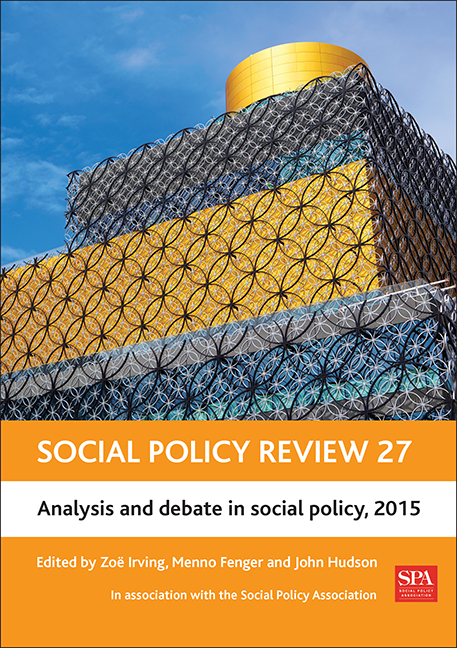Book contents
six - New keys for old doors: breaking the vicious circle connecting homelessness and re-offending
Published online by Cambridge University Press: 08 March 2022
Summary
Policy-makers concerned with preventing re-offending have long been aware of the relationship between crime and homelessness. Single homeless people are more likely to be victims of violent crime, to be drawn into criminal sub-cultures, and to receive custodial sentences when they offend. Likewise, offenders are more likely to re-offend in the absence of stable accommodation, while custodial sentences frequently put accommodation at risk, creating a vicious circle. This is especially true of offenders given short-term prison sentences of 3–12 months. This concern has been given a new imperative in the UK by the passing of the Offender Rehabilitation Act 2014, and the extension of statutory rehabilitation to short-term prisoners. Policy-makers concerned with effective offender management are therefore keen to explore ways in which securing stable accommodation might reduce re-offending.
This chapter seeks to provide evidence from an evaluation of a small-scale attempt to use the procurement of stable accommodation as a key element in a package of support designed to reduce the likelihood of re-offending among a particular group of offenders with short-term sentences for prolific acquisitive crime, 90 per cent of whom were homeless at the time they were sentenced. The evaluated project is managed by a partnership between a Category B community prison in the English Midlands and a voluntary sector day centre for homeless adults, to which service users frequently gravitate on release. The evaluation explores the effectiveness of the project in preparing participants for release and in preventing homelessness, re-offending and social isolation. Data were gathered from interviews with service users and key informants from housing and support services to whom referrals are made, in order to advance our understanding of what mediates the relationship between acquiring and maintaining secure accommodation and reductions in criminal activity, thereby informing wider debates around prisoner rehabilitation as a policy objective.
Enduring problem: homelessness and re-offending
Concerns about re-offending rates among ex-prisoners have long occupied the minds of policy-makers in the UK. The report by the Social Exclusion Unit, Reducing re-offending by ex-prisoners (SEU, 2002), is still regarded as something of a benchmark in tackling re-offending, partly because it was the first recognition of ex-prisoners as a multiply excluded group rather than merely a group of ex-offenders, but also because so little has changed in the intervening 12 years.
- Type
- Chapter
- Information
- Social Policy Review 27 , pp. 113 - 130Publisher: Bristol University PressPrint publication year: 2015



